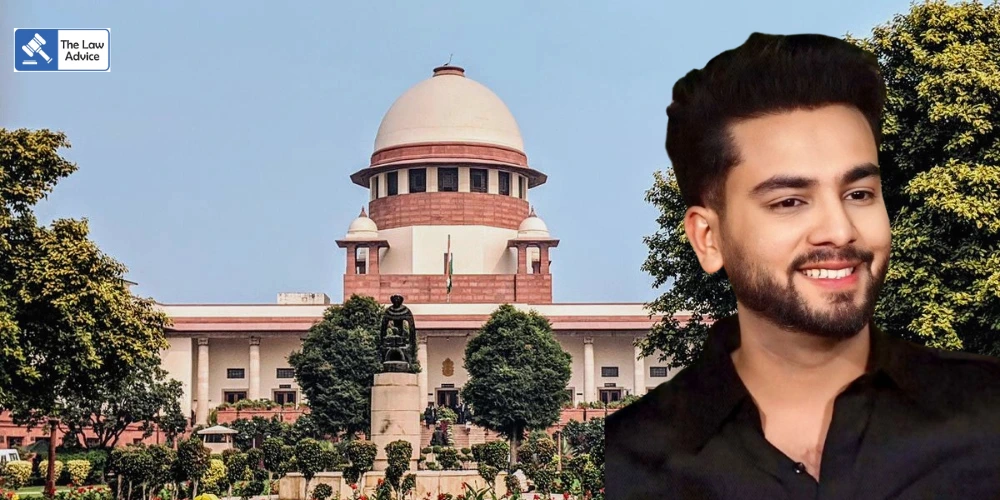New Delhi | August 6, 2025
In a high-profile development, the Supreme Court of India on Tuesday stayed all ongoing trial court proceedings against YouTuber and social media influencer Elvish Yadav, who is facing serious charges related to the alleged use of snake venom at rave parties.
The case, which captured nationwide media attention due to its bizarre and serious wildlife-related accusations, now heads for detailed legal scrutiny as the apex court steps in to examine procedural and evidentiary aspects raised in Yadav’s appeal.
A bench comprising Justices M.M. Sundresh and Joymalya Bagchi issued notice to the State of Uttar Pradesh and the original complainant, while staying further proceedings in the trial court.
The interim relief came in response to Yadav’s plea challenging:
• The summoning order and chargesheet issued by the trial court,
• The application of provisions under the Wildlife (Protection) Act, 1972, the Narcotic Drugs and Psychotropic Substances (NDPS) Act, and the Indian Penal Code (IPC), and
• The validity of the First Information Report (FIR) itself, which was allegedly lodged by a person who was not duly authorised under law.
The matter has been posted for the next hearing on August 29, 2025.
The controversy dates back to late 2023 and early 2024, when Noida Police conducted a series of raids based on information that live snakes and snake venom were allegedly being used as recreational substances at high-end parties.
According to the prosecution, these events were allegedly hosted or attended by Elvish Yadav, with some claims that he facilitated access to protected wildlife species — a serious violation under Sections 9, 39, 48A, 49, and 51 of the Wildlife (Protection) Act.
An FIR was registered at the Sector 49 Police Station in Noida. Yadav was arrested in March 2024 and later granted bail. However, the trial court took cognizance of the charges in early 2025, leading to Yadav’s move before the High Court.
Earlier this year, the Allahabad High Court had refused to quash the chargesheet and summoning order against Yadav. The High Court found that the investigation revealed sufficient grounds to proceed, even though no venom was recovered directly from Yadav.
Yadav’s counsel, however, argued before the Supreme Court that:
• No contraband substance or snake venom was recovered from his person,
• The FIR was initiated by someone who did not hold official wildlife enforcement authority at the time,
• The charges were vague, based on mere association or attendance, and were driven more by public pressure than solid evidence.
The Supreme Court, while not commenting on the merits of the case, stayed proceedings to examine whether there had been a misuse of criminal process or improper application of special statutes such as the NDPS and Wildlife Acts.
This case touches on several pressing legal themes:
• Celebrity and influencer accountability in the digital age;
• Proper enforcement of wildlife protection laws, especially where endangered species are involved;
• The importance of procedural integrity — from who can lodge an FIR to how charges are framed under special statutes;
• The risk of trial by media in high-profile cases, particularly when influencers are involved.
Legal experts say that the Supreme Court’s intervention reflects a broader concern about ensuring that serious environmental laws are applied correctly, and not casually or for sensationalism.
• Case Title: Elvish Yadav v. State of Uttar Pradesh & Anr.
